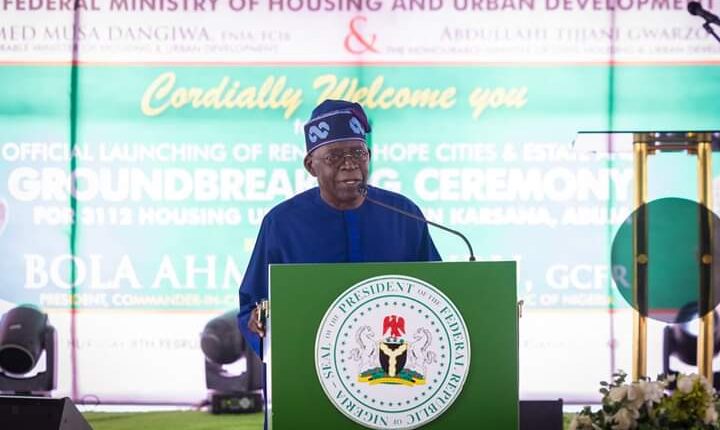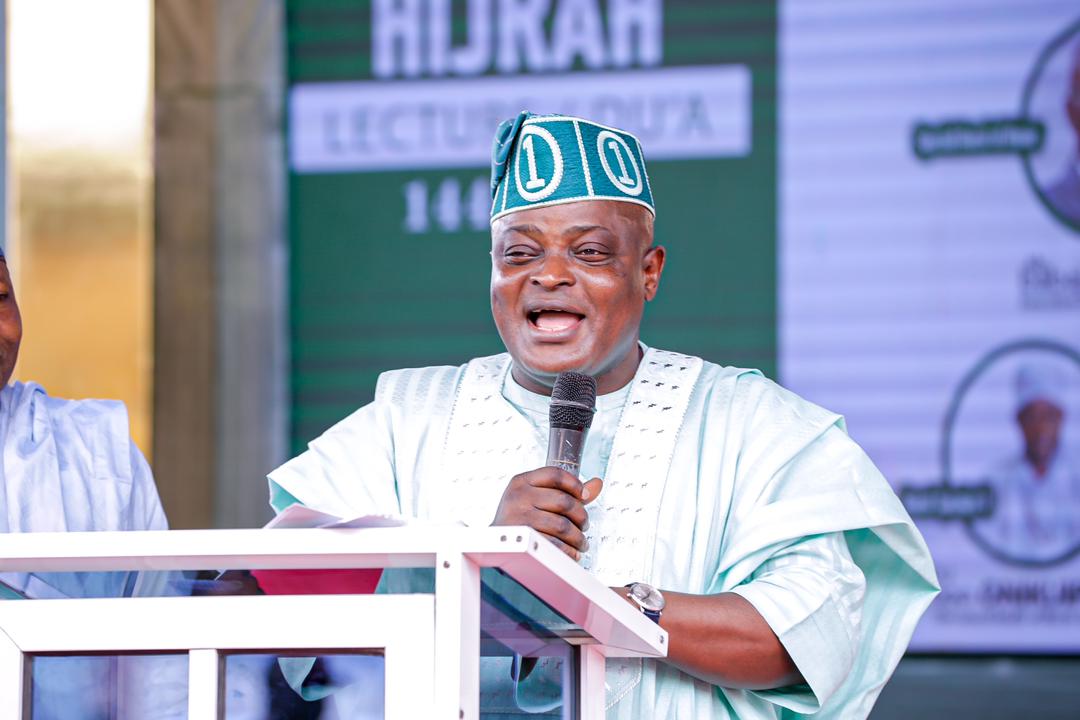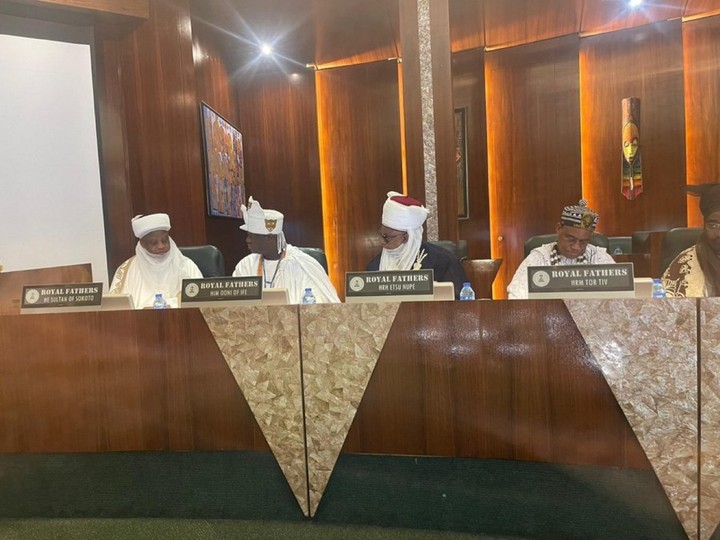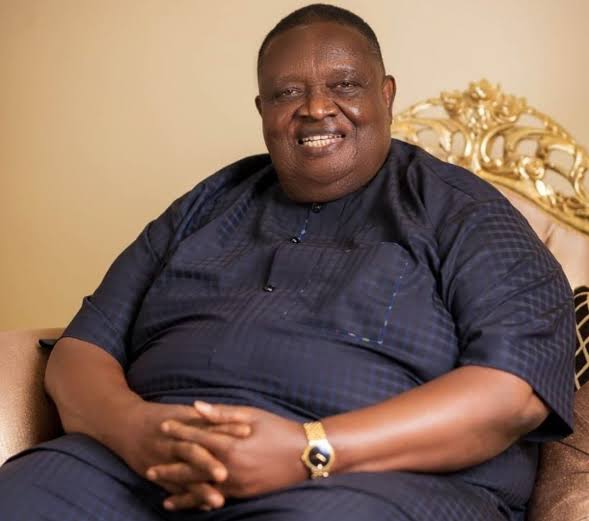*Which Way Nigeria: The Imperatives of A New Economic Direction*
By Dapo Otubanjo, a financial analyst & real estate entreprenuer
After eight months in the Villa, the clock ticking on President Tinubu’s administration has gathered enough time for us to start seeking accountability for his actions, and the delivery of his electoral promises to a Nigeria with an urgent need for national renaissance, and a new economic direction.
The realities of our lives today as Nigerians is gravely incongruous to the promise to renew hopes, and reinvent the economy for a new era of opportunities, and prosperity for all of us. The agony of excruciating economic stagflation is now more widespread, and tending towards a period of national economic depression.
Nigerians understand, and have demonstrated severally in time past, that when time and government change, so must we the people as “new challenges require new responses”. Unfortunately the economic pains of this era are like a disaster with no solution in sight, leaving most folks in the terrifying situation of inadequate household income for survival talkless of a decent living.
Given Nigeria’s precarious economic situation post Buhari’s government of destructive economics, there was no doubt about the need, and urgency for appropriate reforms to reorganize the country for economic recovery, and national security. And whilst the reforms of Tinubunomics are requisite liberal policy prescriptions, the executions are mired in premature timing, terrible implementation, and insensitive partisan gloating over the government’s audacity to introduce the reforms rather than a democratic tolerance for national discussions on the devastating consequences of its impacts as leverage to gauge acceptance, and gather citizens feedbacks for reviews, adjustments, and corrective measures in its areas of deficiencies, and ineffectiveness.
However the opportunity still exist, for correction and, to arrest our miserable spiral towards economic doomsday, and President Tinubu must hurriedly embrace the wisdom to do a reset, and refine the wrong elements of his reforms for the achievement of better outcomes in critical areas of job creation, reducing, and stabilizing both the value of the naira, and inflation, and attracting significant local, and foreign investments for the immediate task of economic recovery, and recreation of a vibrant middle class that was totally wiped out by the previous APC government, and long term goals of industrialization, and sustainable growth in the economy, and our export sector.
The best, and most imperative solution, and palliative for the rising cost of living is immediate wage increase across all sectors. The Federal government must seek to achieve wage increase of two hundred thousand naira for Federal workers, negotiate with the states for one hundred and fifty thousand naira for all state employees, and push the private sector towards fifty thousand naira as the barest minimum for the lowest set of workers to fuel consumer spending that was hitherto dwindling for obvious reasons, and improve households financial resources to minimally mitigate against worsening economic situation.
The inflationary effects of an unstable naira need a freeze otherwise the application of wage increase will be futile, and become a continuous demand. It is imperative for the government to return the provision of interventions in the FX market through partial exchange rates management until all foreign investors seeking full liberalization are willing to bring in their funds, and/or when the sale of government assets, and export earnings are sufficient enough to provide adequate supply for FX demands. The arbitrage gains of FX trading in the previous APC government made FX business highly profitable with devastating practices of round tripping, and speculative FX trading that continuously encourage a large number of folks to hoard, and hold on to a large pool of foreign currencies at the expense of a free fall in the value of the naira.
Through the CBN, the government need to urgently introduce appropriate monetary measures to curb these practices, and incentivize the release of more foreign currencies into the market.
Our national challenges cannot be resolved by government alone but the government have a crucial role to play in setting the agenda, and transforming the private sector into a pivot for growth, and national development. President Tinubu should as a matter of national emergency deploy all presidential support for the Dangote, and other refineries to achieve refining capacity sufficient enough for local fuel consumption, and make provisions to export excess supply to the West African sub region. And use the support, and other regulatory instruments to negotiate a stable fuel price over three to five year period as further safeguard against inflation, and forex pressure on the naira.
So many of our Federal assets are wallowing in the inefficiencies of terrible operations, corrupt government practices, and nepotistic managements delivering inadequate, and unreasonable returns for the Nigerian state. There should be an urgent consideration for their privatization, and sales to generate requisite, and significant revenues to shore up the economy, and engineer a long term foundation for sustainable growth, and national prosperity.
Our demands, and exploration for foreign investments must seek prospects in the Middle East, and some parts of Asia where there are abundance of liquidity for investment capital, and great probability for immediate result. The president should constantly deploy his most brilliant envoys to the region for continuous negotiations, and schedule all presidential investment travels around the region for closing of appropriate investment deals.
Recently, the government launched over a hundred billion naira housing programme. As good, and commendable that is, it is still a drop in the ocean, and too meagre for any significant social, and economic impact for a nation of over two hundred million population. We must seek to raise trillions of naira within a short term for the substantial growth of the sector, and its exponential impacts on the economy, and provide complementary infrastructure for urbanization, rural connections, and the financial reform of our mortgage system to reduce interest rates, increase period, and affordability, and expand access to more households. We have a large pool of idle funds in various pension schemes, and must explore a viable government means for these funds to find profitable returns in real estate business opportunities.
The erosion of value in our banking sector capitalization levels are critical challenges for our national ambitions, and obviously needs urgent rounds of renewal towards the trillions of naira capitalization threshold to adequately fund the expansion of national productivity, manufacturing, sustainable large scale credit industry, and a new middle class.
And those super highways (SHW) the president promised us need to start coming alive in urgent, and huge contract awards, and accelerated construction works as credible means to connect communities, and states across the country, and ease the movement of people, and products. Our rail networks need significant improvements, and expansion with appropriate security measures to complement the comprehensive renewal, and expansion of our transport means, and its impact in the boosting of trade, and commerce.
Generations of Nigerians have endured economic crises at different times of bad governance often with the deceptive cliché that the situation will eventually get better. President Tinubu must make a departure from that decades old political narrative, and explore credible means within the limitless possibilities of our potentials to stimulate immediate economic recovery, and long term sustainable growth, secure, and unite the country, and deliver the promise of a developing nation.
Today’s worsening economic situation is not a new territory for Nigeria as we have often travelled through tough national periods of economic stagnation, and recession, widespread poverty, and underdevelopment. The president should reasonably review thoroughly the economic reforms of the democratic government of 1999 – 2007, and draw appropriate economic lessons from the successful economic reforms of that era in reasonable FX market, and inflation management, naira stabilization, privatization, bank consolidation, the commencement of a credit system that was subsequently unscaled, a widening middle class, and amazing economic growth that put Nigeria at the forefront of the globally acclaimed narrative of Africa rising. And essentially gave a national rebirth to the audacious can do spirit of the Nigerian folks. It was an era of incredible demonstration of what we can achieve together through collective actions, and visionary leadership, and we must seek to replicate the same economic results as a navigating path out of our current economic downturn.
The current generation of Nigerians possess all that we require to transform ourselves from a nation perpetually travelling in the wrong direction into a developing country of proud citizens. The onus is essentially the president’s to lead from the front, and set forth a clear vision with opportunity for everyone to make appropriate contributions towards sustainable growth, and national development.
Tough times define great leaders. And time, and chance they say happen to all of us. There is a great moment for the president to seize, and more importantly for the sake of our nation, we hope he takes this period as an incredible chance to cement the foundation of his legacy, and unfold the greatness of Nigeria.

 Business6 months ago
Business6 months ago
 Business6 months ago
Business6 months ago
 celebrity radar - gossips6 months ago
celebrity radar - gossips6 months ago
 celebrity radar - gossips6 months ago
celebrity radar - gossips6 months ago














